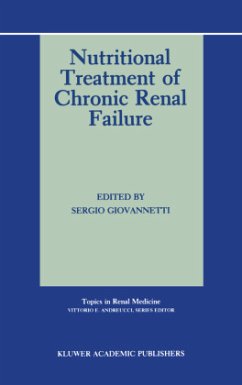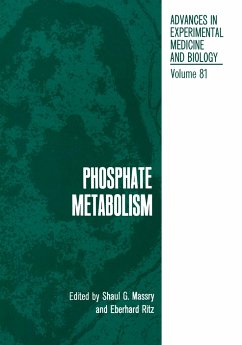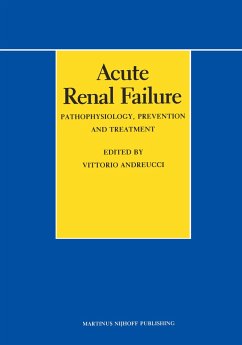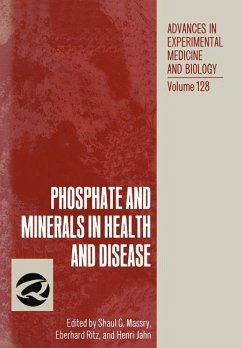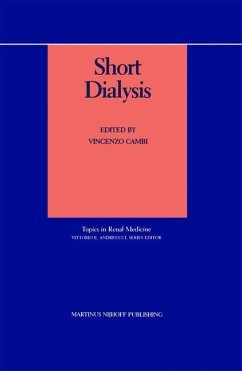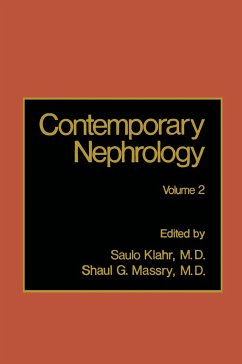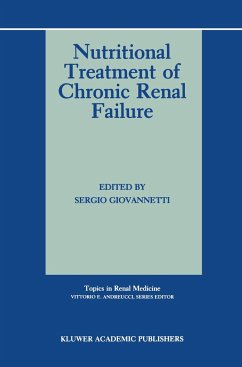
Nutritional Treatment of Chronic Renal Failure

PAYBACK Punkte
115 °P sammeln!
Enormous progress has been made in the treatment of chronic renal failure over the last decades. Until the 1950s, chronic renal failure was considered to be an inexorably lethal condition. This is no longer the case. In addition, the disease, severe uremic syndrome, is now extremely rare, if existent at all, in industrialized countries. Physicians of my generation who saw patients hospitalized with hemor raghes, pericarditis, severe anemia, cardiac failure, "malignant hypertension," pruritus, vomiting, generalized edema, and convulsions are particularly grate ful for this progress. I well reme...
Enormous progress has been made in the treatment of chronic renal failure over the last decades. Until the 1950s, chronic renal failure was considered to be an inexorably lethal condition. This is no longer the case. In addition, the disease, severe uremic syndrome, is now extremely rare, if existent at all, in industrialized countries. Physicians of my generation who saw patients hospitalized with hemor raghes, pericarditis, severe anemia, cardiac failure, "malignant hypertension," pruritus, vomiting, generalized edema, and convulsions are particularly grate ful for this progress. I well remember seeing such patients hospitalized in the last days or weeks of their lives and also remember the sense of impotence I suffered for the com plete lack of efficient measures I had at my disposal to manage their condition. Nowadays, hemodialysis, peritoneal dialysis, and kidney transplantation allow patients with chronic renal failure to survive for very long periods of time in a satisfactory condition. Why then is there still a sense of dissatisfaction and why should we study dietary management? The drawbacks of dialysis and transplantation are the main reasons, but the certainty that dietary therapy is complementary to dialysis and even better than dialysis in certain conditions, is also very important.





